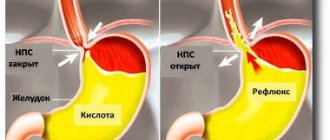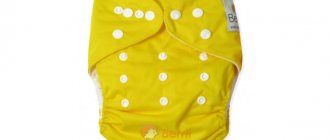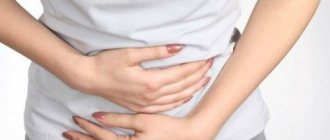Why is there a problem?
Hemorrhoids in a nursing mother are a common problem. Often the disease develops during pregnancy, especially in its last stages. This is due to the growth of the uterus, which puts pressure on the walls of the rectum. Before the baby is born, symptoms may be absent or mild. The pathology worsens during the birth process, when intra-abdominal pressure increases significantly. The consequence of this process is the formation of nodes and anal fissures, which entails many unpleasant symptoms of the disease.
Another common cause of hemorrhoids in nursing mothers is constipation. Abnormal bowel movements occur due to many reasons. This is diet, stress, an increase in the hormone progesterone. As a result, the digestion process is disrupted, constipation appears, leading to hemorrhoids.
In addition, the following conditions may be factors that provoke the disease:
- low physical activity;
- taking hormonal medications prescribed by a doctor;
- stress, chronic fatigue;
- long labor (more than 12 hours).
Hemorrhoids during breastfeeding can appear as an exacerbation of an existing disease before pregnancy and childbirth. To prevent complications of the disease, you should promptly recognize the symptoms of hemorrhoids and take the necessary measures to treat it.
Clinical manifestations of the disease
Hemorrhoids in a nursing mother occur long before the child is conceived. Predisposing factors are a sedentary lifestyle, unbalanced diet, heavy physical activity and genetic nuances. The disease manifests itself with external and internal signs.
Manifestations of external hemorrhoids:
- enlarged, swollen nodes of a bluish-purple color at the entrance to the anus;
- pain and bleeding during bowel movements;
- pain when straining, coughing or sneezing;
- burning and discomfort in the anal area.
This type of disease is easier to identify and begin treatment. Internal hemorrhoids develop more slowly: hemorrhoids expand inside the rectum, so it is more difficult to determine this type of disease on your own. Symptoms of the disease are:
- pain and blood during and after defecation;
- feeling of incomplete bowel movement;
- pain and burning in the anal area.
Doctors distinguish 4 stages of hemorrhoids. At the first stage, patients note pain during bowel movements and bloody discharge from the anus. At the last stage of hemorrhoids, fecal incontinence, prolapse of hemorrhoids and severe incessant intestinal bleeding are observed.
Traditional treatment
Laxatives
This group of drugs is taken to normalize stool after childbirth and prevent the development of an inflammatory process in the intestines. A drug with a laxative effect is recommended to treat hemorrhoids in nursing women when the disease worsens due to chronic constipation. Doctors have approved the use of Duphalac, Fortrans and Normaze. The basis of these medications is lactulose. This component cannot be absorbed into milk and harm the baby.
Antihemorrhoidal suppositories
Suppositories with calendula promote wound healing.
Suppositories are effective remedies against hemorrhoids. Medicines in this group are safe for mothers and babies. Suppositories for hemorrhoids during lactation are not absorbed into milk, but are able to quickly localize and reduce pain. At the initial stage, the doctor recommends suppositories with herbs. Calendula heals wounds, propolis relieves inflammation and irritation, helps heal cracks. Sea buckthorn candles are used as aids. Suppositories are effective only in the initial stages of the disease. The best suppositories that are allowed to be used during breastfeeding are presented in the table:
| Titles | Characteristic |
| "Natalsid" | A safe drug that does not affect lactation. The seaweed contained in the suppositories relieves inflammation. |
| "Relief" | A combined remedy for relieving inflammation, healing wounds and strengthening the immune system. |
| "Olestesin" | Has a combined base. Sea buckthorn oil reduces pain and inflammation. |
| "Nigepan" | An anesthetic suppository helps eliminate a blood clot. |
When using suppositories to eliminate external postpartum hemorrhoids, nursing women must adhere to the following rules:
- It is better to take all medications after consulting a doctor;
- do not use or exceed the permissible dosage of the medication;
- sometimes approved medications can cause allergic reactions;
- the suppository can narrow the vessel and provoke an increase in pressure;
- drugs are stored in a cool place.
Ointment and cream
Heparin ointment will help a woman with a tendency to form blood clots.
External medications also effectively combat hemorrhoidal expansion. They are best used in conjunction with candles. Ointment for hemorrhoids after childbirth helps reduce pain. Heparin ointment is an anticoagulant that reduces blood clotting. If a woman has a tendency to thrombosis, then this drug will help improve blood flow, reduce swelling and itching. Inexpensive “Vishnevsky Ointment” is well suited for nursing mothers and does not harm the baby. With its help it is possible to restore damaged tissue.
Venotonic drugs
They are used in the last stages of hemorrhoid development. When breastfeeding, women are allowed to take effective Detralex tablets. They have a plant base that does not harm the baby and mother. “Troxevasin” (capsules) is allowed to be taken only with the knowledge of doctors, when the patient needs to tone the vascular system, strengthen the walls, and increase the body’s resistance. Venotonic drugs should not be taken without a doctor's prescription.
Benefits of the ointment
Hemorrhoids often begin to progress after childbirth, leading to discomfort, burning, itching, irritation, and the appearance of drops of blood after the next trip to the toilet. Symptoms may persist for quite a long time even after a complete bowel movement. The problem needs to be treated. Of course, with hepatitis B, doctors do not advise resorting to dubious folk methods and home recipes. Nevertheless, it is better to consult a doctor - proctologist to prescribe a course of treatment.
Not all local medications for hemorrhoids are approved for women during the lactation period. Many, as during pregnancy, remain prohibited. Ointment for hemorrhoids is an effective remedy that helps relieve unpleasant symptoms well and quickly, especially at the initial stage of the disease.
Hemorrhoids need to be treated comprehensively, and women should approach the choice of medications with special care. The active ingredients during drug treatment should not penetrate into the blood or breast milk. The use of ointments and suppositories is the best solution in such situations.
With hemorrhoids, constipation is common, so it is equally important to follow hygiene rules and carry out cleansing procedures before using external agents.
Hemorrhoid ointment for external use is a convenient and approved form, it helps well with the external location of hemorrhoids, quickly eliminates painful and unpleasant signs, is safe for the baby’s health, and does not lead to negative consequences. Main advantages:
- elimination of inflammation;
- restoration of blood flow;
- stimulation, regeneration of affected mucous membranes and tissues;
- normalization of blood circulation;
- regeneration of vascular walls.
The main thing when using ointments for hemorrhoids during lactation is not to neglect the dosages. For hygiene purposes and to achieve greater effect, it is advisable to first give an enema, cleanse the intestines, and use sitz baths with the addition of herbal decoctions (oak bark, chamomile, plantain, celandine, yarrow, sage).
The most frequently asked questions to the doctor
Pediatricians are not only doctors who deal with the baby’s problems, but also those to whom women go with questions about breastfeeding. Experienced doctors have already identified a number of questions that they most often hear at consultations.
Let's answer the most pressing interest for nursing mothers regarding the use of the medication we are interested in.
Question No. 1
Does Vishnevsky ointment harm the baby during breastfeeding and can diathesis develop?
Answer: definitely, it doesn’t harm. The ingredients from the composition do not have the ability to migrate into breast milk, therefore there is no point in interrupting natural feeding. Breastfeeding is the best thing a mother can provide for her baby, especially in the first months of his life!
Question No. 2
Is it possible to introduce complementary foods and supplements if a woman is using this medication at this time?
Answer: if your child is absolutely healthy, has not suffered from eating disorders the day before or has no obvious allergic reactions, then carefully introduce complementary feeding or complementary feeding. But before introducing a new product, you should definitely consult with your local pediatrician.
Question #3
Is a medical consultation required before starting treatment with Vishnevsky ointment?
Answer: yes, you should definitely get a consultation. If the first signs of lactospasm or mastitis appear, you should consult a surgeon or, if this is not possible, then call a pediatrician at home. Especially if your baby is only a few months from birth.
Question #4
Can a mother experience an allergic reaction after using balsamic liniment?
Answer: yes, it can. It is impossible to predict the body's response to any drug, even the most harmless one. But decades of active use of the drug have proven its hypoallergenic property.
To prevent allergies, doctors advise applying Vishnevsky ointment to a limited area of the skin of the wrist and wait a few hours. If there is no swelling, redness or rash, then feel free to treat with this medication.
Question #5
How to properly use the medication at home?
Answer: Vishnevsky ointment is applied in a thick layer, evenly distributed over the clean skin of the affected area of the mammary gland. Next, apply a thin napkin made of natural fabric, covering it with compress paper on top.
The resulting “pie” is fixed with adhesive tape. It is better to keep the bandage on all night, and in the morning wash off the remaining ointment with warm water and soap. Wipe the skin dry with a soft terry towel and apply any soothing cream.
From all the above facts, you need to draw the right conclusions and not use the drug blindly and as an ideal remedy in the fight against lactostasis and/or mastitis
Only a doctor can accurately assess the degree of risks and the expected positive effect from using liniment, therefore Vishnevsky ointment is used with caution during breastfeeding. Do not self-medicate, especially during such a crucial period of life when you are breastfeeding your baby!
Candles for use by nursing mothers
Relief
The product is one of the safest. Suppositories and ointments under the trade name “Relief” have the same properties and are equally safe. The product is based on shark liver oil, which helps relieve inflammatory processes. Suppositories are good at eliminating the symptoms of weeping hemorrhoids, reducing the pain threshold and burning sensation.
https://youtube.com/watch?v=wFmurUE3kDE
Suppositories with sea buckthorn or propolis
Such suppositories promote healing of wounds, eliminate itching and burning sensations.
Procto-glivenol
This drug is based on lidocaine and tribenzoide. The first component reduces pain, and the second helps regulate blood flow and heal wounds.
Gepatrombin G
These suppositories are one of the most popular and are used to treat hemorrhoids in both pregnant women and women during lactation. The product not only relieves pain, but also normalizes blood flow - therefore, blood does not stagnate in the nodules.
Posterisan
It relieves pain well, stimulates the immune system, so complications do not appear after using suppositories. The product does not allow bacteria to attach to the existing disease.
Using Vishnevsky ointment
Traditionally, liniment according to Vishnevsky is considered one of the most effective and safe ointments. This product is an excellent antiseptic of natural origin.
Thanks to its unique composition, it helps fight symptoms such as:
- pain;
- edema;
- itching;
- burning;
- redness.
The liniment is based on birch tar, which determines the healing properties of the product. Vishnevsky ointment can be safely used to treat hemorrhoids by women who are breastfeeding. The only drawback of the drug is its strong unpleasant odor.
The ointment is best used for compresses. After hygienic procedures, it is applied in a dense layer to the external hemorrhoids, and covered with a gauze napkin on top. This compress is effective against inflammatory processes that occur due to pathogenic microorganisms getting into small cracks in the buds.
How to cure hemorrhoids in nursing women
In the case when a woman is breastfeeding, treatment of hemorrhoids during lactation is prescribed with great caution. As a rule, in this situation, they resort to local treatment, refusing to take pills, so as not to harm the baby through milk feeding.
Ointments for women during lactation
When choosing the right remedy, you should pay attention to the type of hemorrhoids. If it is internal, then it is better to use suppositories, and for external hemorrhoids a cream or ointment will help.
Heparin ointment
This remedy is gentle and quickly relieves inflammation, with the removal of which the itching and burning go away.
Vishnevsky ointment
The ointment copes well with inflammation, but before starting treatment, a woman needs to give herself manganese sitz baths for four days and only after that start using the ointment.
Fleming's ointment
This remedy falls under the category of homeopathic medicines. The ointment is based exclusively on natural ingredients - sea buckthorn oil, nettle oil and other medicinal plants.
"Posterizan"
This ointment regenerates damaged areas well, so it is most often prescribed when the disease is accompanied by cracks and wounds.
What provokes the development of the disease
In fact, there are many reasons for the development of the disease. Milk is produced in special glandular cells called acini. Each gland has up to 25 acini. The glandular cells connect to the nipple through ducts. If the acini produce milk, but the baby does not have time to suck it out, there is a decrease in the lumen of the duct and the formation of a plug. This is perhaps the main cause of lactostasis. In addition, milk retention in the gland can be caused by:
- improper attachment of the baby to the breast;
- too active secretion of milk;
- dehydration;
- mammary gland injuries;
- hypothermia;
- frequent stressful situations;
- the special structure of the gland ducts;
- the presence of wounds and cracks on the nipple;
- special nipple shape;
- long intervals between feedings;
- special structure of the mammary glands;
- wearing underwear that is too tight;
- improperly holding the breast during feeding (with two fingers), because of this the ducts are compressed;
- chronic fatigue, overwork;
- history of mastopathy;
- premature weaning.
Hemorrhoids and breastfeeding
Hemorrhoids form in women either during childbirth or during pregnancy. This is due to the fact that during pregnancy and labor, the perineal veins often suffer from overstrain. The second reason for the development of the disease is frequent constipation that occurs in the prenatal and early postpartum period.
Hemorrhoidal manifestations during lactation cannot be ignored. Despite the fact that most drugs are excreted in breast milk, it is always possible to choose a safe drug for pregnant women.
Popular candles for nursing mothers
A drug
Characteristic
Side effects/contraindications
Packaging cost
Procto-glivenol
Relieves inflammation, pain and itching; reduces skin tension, tones veins
Mild burning sensation and allergies/liver failure
400-500 rubles
Relief
The combined drug relieves inflammation and heals wounds, strengthens the immune system
Allergy/fungus and tuberculosis, use with caution during pregnancy, lactation and diabetes
300-400 rubles
Anuzol
The cheapest suppositories with a lot of side effects. Not recommended for use during lactation; the drug dries and anesthetizes, relieves spasms and inflammation
Allergies, burning sensation, constipation, dry mouth, sleep and vision disturbances, etc.
/ heart failure, pregnancy, use with caution during lactation
60-80 rubles
Natalsid
Safe suppositories for hemorrhoids during lactation containing seaweed; effectively relieve inflammation.
Allergy/sensitivity to components
300-350 rubles
Proctosedyl M
A hormonal drug designed for a short course; the effect is achieved within a few seconds; due to the presence of an antibiotic in the composition, it is not recommended for use in hepatitis B
Burning and discomfort, allergies/pregnancy, fungus and infections, tuberculosis, use with caution in case of breastfeeding and heart failure
350-400 rubles
Ultraproct
Fast-acting hormonal drug
Allergy/tuberculosis, pregnancy
500-550 rubles
Olestesin
A combined preparation containing sea buckthorn oil, relieves pain and inflammation
Allergies and loose stools/sensitivity to components
120-130 rubles
Betiol
Suppositories containing ichthyol and belladonna extract, relieve inflammation and spasms
Palpitations, loss of concentration, thirst, constipation, dry mouth/glaucoma, hypersensitivity
70-80 rubles
Gepatrombin G
The combined remedy relieves inflammation and resolves blood clots
Redness and allergies/pregnancy, infections, tuberculosis
200 – 250 rubles
Nigepan
The combined agent anesthetizes, prevents and stops the formation of blood clots
Allergy/individual intolerance to components
200 rubles
Relief and Gepatrombin
Relief suppositories and ointment stop bleeding and effectively treat itching. There are several types, which are prescribed depending on the stage and specifics of the disease. Relief Advance is used for severe pain. Improves blood circulation and relieves swelling. Relief Ultra is a universal remedy that will cure itching, burning and bleeding, relieve severe pain and inflammation.
The drug has a direct effect on inflamed nodes, has a positive effect and strengthens the body. Only a doctor can prescribe such suppositories for hemorrhoids during lactation!
Gepatrombin ointment and suppositories, in addition to standard treatment, relieve swelling and prevent the appearance of blood clots and stop the development of already formed blood clots.
Hepatrombin is used only for the treatment of internal hemorrhoids. Such suppositories are administered only after bowel movements, otherwise they will be useless. If the products are abused, the opposite effect may occur!
Procto-glivenol and Natalsid
Procto-glivenol and Natalsid are safe products that can be used during lactation. The components of these products do not pass into breast milk. However, drugs sometimes cause an allergic reaction in mothers. This is a rash, severe itching or burning. Be careful when using Procto-glivenol as it contains lidocaine.
Plus Natalsid candles in natural composition. The drug contains an active substance that is obtained from brown algae. It has a beneficial effect on the rectal mucosa, relieves inflammation and restores the condition of the body. Thanks to its natural composition, Natalsid has a minimum of side effects. Therefore, doctors recommend taking these suppositories during breastfeeding.
Traditional recipes to help women
You can prepare an ointment for hemorrhoids during lactation yourself.
Propolis ointment
This ointment is prepared from dry propolis, which is grated. Vegetable oil is added to the resulting composition. In proportion, it looks something like this: for 1 g of propolis there are 10 g of oil. The composition is placed in a water bath and melted for one hour. The prepared ointment must be stored in the refrigerator.
Flaxseed ointment
For the ointment you will need two tablespoons of dried toadflax flowers, which are poured with alcohol (two spoons). The product is sealed in a bottle and left for five hours. After this, add 10 tablespoons of lard, which is pre-melted. The resulting mixture is placed in a steam bath and kept there for three hours. Afterwards, the ointment is filtered through gauze and applied three times a day.
Any mother with breastfeeding, especially one who has encountered hemorrhoids for the first time, should realize that this disease is not so harmless, but responds well to conservative treatment. The main thing is not to start the problem, do not wait until the third or fourth stage begins, at which surgical intervention may be recommended.
Put a star:
( 1 ratings, average: 5.00 out of 5)
Save for yourself or share with friends: Save smart! DISCOUNTS FOR EVERYONE up to -90% ON EVERYTHING!
Effective ointments for hemorrhoids during breastfeeding
Women suffering from this delicate disease and who decide to breastfeed after childbirth should pay attention to the naturalness of the main components included in its composition when choosing an ointment. Today on pharmacy shelves you can find many medications for hemorrhoids.
At the same time, both domestic and foreign products of pharmaceutical companies are offered. Many of these products, due to their composition, are perfect for breastfeeding
Today on pharmacy shelves you can find many medications for hemorrhoids. At the same time, both domestic and foreign products of pharmaceutical companies are offered. Many of these products, due to their composition, are perfect for breastfeeding.
The most popular and successful in use are the following ointments for hemorrhoids.
Heparin ointment for hemorrhoids and hepatitis B
The safest and most effective treatment for the health of the mother and her baby during hepatitis B is heparin ointment.
At the same time, this drug acts carefully and delicately. If the patient is bothered by pain and protruding inflamed nodes, then the drug will have a powerful effect on the area of skin treated with it: it reduces pain and reduces inflammation. Heparin ointment for hemorrhoids during breastfeeding is applied only to the clean surface of the inflamed nodes no more than twice a day. It is also noteworthy that with lactation it is possible to cure hemorrhoids in a patient even at the 1st and 2nd stages of the development of this disease.
Vishnevsky ointment and Relief for hemorrhoids during lactation
Vishnevsky ointment, familiar to each of us since childhood, is an effective remedy for hemorrhoids, including in women who are breastfeeding.
This remedy not only quickly relieves pain and reduces inflammation, but is also absolutely harmless to the health of the baby and his mother. It contains safe and natural ingredients - xeroform, tar and castor oil. Using the product during lactation, a woman not only receives a reduction in the symptoms of hemorrhoids, but can also observe the restoration of defective tissues. Its downside is its specific, pungent smell. Relief ointment consists of the following main natural ingredients: shark liver oil and phenylephrine. This product, depending on the variety (standard, Advance or Ultra), is used both for external use, applied to certain areas of the skin in the anus or external nodes, and is administered through a special applicator inside the anus. Cream for hemorrhoids during breastfeeding Relief not only eliminates itching and pain, but also acts as a wound healing agent, helps strengthen blood vessels and restore tissue. At the same time, the drugs in this series do not harm the health of a nursing mother and child.
Ointments for hemorrhoids during breastfeeding - Chinese, Fleming
Chinese ointment for hemorrhoids, which appeared relatively recently in domestic pharmacies, has become very popular due to its natural composition and versatility of use.
It contains musk and its main uses are as a decongestant and an analgesic. This ointment is also an excellent hemostatic and regenerating agent. Quite often during lactation, homeopathic Fleming's ointment is used. The basis of this remedy is yarrow and sea buckthorn oil; this ointment includes St. John's wort and some other medicinal herbs. This remedy is recommended for use as a preventative measure to minimize the risks of exacerbation of hemorrhoids during hepatitis B.
Aurobin ointment for hemorrhoids during breastfeeding
As a rule, it is prescribed for inflammation and prolapse of nodes. This remedy also has anti-inflammatory and analgesic properties. Although Aurobin is a synthetic substance, its components are completely harmless to the health of the child when breastfeeding.
In addition to the above products, Posterisan, Levomikol, Bezornil and others are also in demand.
Young mothers need to understand that they should not engage in independent drug selection and treatment, even when it comes to the highest quality and proven drugs. After all, it may turn out that an incorrectly chosen remedy will harm the health of not only the baby, but also the nursing mother herself.
Home remedies
Medicine for hemorrhoids for nursing mothers is selected individually, taking into account the risk for the baby. If the manifestations of the disease are moderate, then one of the recommendations of the attending physician: how to treat hemorrhoids during lactation may be advice to use traditional medicine.
To eliminate symptoms that arise during the lactation period, treatment of hemorrhoids during lactation can be carried out with self-made suppositories:
- from honey;
- from ice.
Honey therapy
The use of honey will help eliminate pain and inflammation, reduce swelling and suppress the activity of pathogenic microorganisms.
To make rectal suppositories, you need to take a candied bee product. You can use only honey or add a safe remedy for hemorrhoids for nursing mothers:
- grated raw potatoes;
- crushed aloe leaves;
- rowan juice.
The ingredients are taken in arbitrary quantities and mixed with honey until a homogeneous mass is obtained, after which suppositories are made in the form of candles and placed in the freezer.
Cryotherapy
Ice constricts blood vessels, reduces swelling, thereby helping to reduce inflammation and eliminate symptoms.
To eliminate hemorrhoidal inflammation, nursing women are recommended to use ice suppositories. You can take pure ice, but it is better to make suppositories with decoctions of medicinal herbs:
- Oak bark;
- chamomile;
- calendula;
- yarrow;
- sage.
Cool the finished broth, strain and pour into molds. Place in the freezer to freeze.
Folk remedies for hemorrhoids with honey or ice are safe during breastfeeding and can be used without restrictions.
How to use suppositories during lactation
Carry out treatment under the strict supervision of a doctor; Do not abuse or exceed the dosage; Even if suppositories are approved for use during breastfeeding, they can cause allergies in mothers and infants
If a negative reaction occurs, stop taking the drug and consult a doctor; Suppositories constrict blood vessels, which sometimes leads to increased blood pressure; Use medications with caution if you have diabetes; Maintain hygiene of the anal area; Follow the instructions when using. Candles are placed 1-2 times a day in the morning and evening before bed for one to two weeks; Keep the suppository in the anus until completely dissolved - you must not allow it to fall into the rectum! ; Store candles in the refrigerator.
Homemade ointments for hemorrhoids during lactation
At home, you can prepare ointments or candles from honey and other beekeeping products, lard, propolis, mumiyo, sea buckthorn oil, extracts of calendula, chamomile, nettle, string, celandine - be sure to check with your doctor.
In addition, it should be understood that folk remedies are background therapy in addition to the main methods of treatment. They will never lead to healing on their own.
Effective ointments for hemorrhoids for nursing
During lactation, a nursing mother is no less susceptible to negative factors than a pregnant woman. This is due to the fact that immunity after childbirth may be reduced, and the process of delivery itself makes itself felt.
When the first signs of hemorrhoids appear in young mothers, self-medication is prohibited. This can harm the baby because he is breastfed. It is necessary to consult a doctor who will select an effective approved remedy.
When treating hemorrhoids in young mothers who are breastfeeding, ointments are most often used. They are harmless due to local effects and the absence of adverse reactions. It is worth listing the main drugs that are prescribed during lactation.
Heparin ointment
One of the frequently prescribed medications for the treatment of hemorrhoids in mothers during lactation is Heparin ointment. Due to its gentle effect on the anus, it does not cause side effects. During the use of the drug you can note:
- elimination of pain syndrome;
- resorption of hemorrhoids;
- elimination of the inflammatory process.
It is allowed during breastfeeding, as it does not have the ability to penetrate the blood. Therefore, the drug does not harm a baby fed on breast milk.
The product should be applied to the affected area of the anus, as well as directly to the nodes. You can use it twice a day
It is important to carry out hygiene procedures before applying the drug.
Fleming's ointment
During breastfeeding, women are allowed homeopathic Fleming ointment. Due to its plant composition, it does not harm either the woman or the child. The drug is made on the basis of:
The product helps reduce pain, itching, and burning in the anus. It also affects the elimination of inflammation and the resorption of nodes.
Posterisan
Posterizan is recommended for nursing mothers. It can be used not only in the presence of a disease, but also for preventive purposes.
Due to the action of active substances, the drug promotes:
- healing of wounds, cracks, damage in the anal canal;
- increasing the overall tone of the body;
- improving local immunity.
It is allowed to be used both during pregnancy and during lactation.
The natural component in the composition is a plus of Relief products. Shark liver oil and phenylephrine help:
- eliminate bleeding from the rectum;
- increase vascular tone;
- relieve inflammation in the anus.
The product also helps accelerate tissue healing, reduce itching and burning.
It is important to note that of the entire line of Relief products during lactation, only ointment is allowed. Other drugs contain a hormonal component that can harm the baby
Vishnevsky ointment
The traditional treatment for hemorrhoids during breastfeeding is Vishnevsky ointment. It consists of:
They help fight germs, inflammation and pain. The product also normalizes blood flow through the veins, which is especially necessary in the presence of hemorrhoids.
The drug is well absorbed and actively affects the affected cells within a few minutes after application, promoting their regeneration.
A strong synthetic drug Aurobin consists of prednisolone, triclosan, lidocaine and d-panthenol. Due to the activity of these substances, the patient can get rid of pain and inflammation when hemorrhoids prolapse. The drug is also necessary for restoring damaged tissue areas, eliminating swelling and bacteria. The remedy is widely used if there are cracks in the rectum.
External use is carried out 2 to 4 times a day. You need to apply the product using your finger or an applicator - for internal administration. The drug is approved during lactation.
Levomekol
Levomekol is an excellent drug with an antibacterial effect. It affects the anus area, helping:
- relieve inflammation;
- accelerate the process of tissue regeneration, wounds, cracks;
- dry the skin with weeping hemorrhoids.
The product is allowed when breastfeeding. There are contraindications for use only in the form of individual intolerance to individual components of the drug.
Heparin ointment
The first place among many drugs is occupied by the well-known Heparin ointment. It has anesthetic and anti-inflammatory properties. If there are hemorrhoidal cones on the outside of the anus, it helps in their rapid resorption. Has a very mild healing effect.
During treatment with this ointment, the nodes disappear in a short period of time. Thanks to its components, it is absolutely safe for a nursing mother . The ointment must be applied to the hemorrhoids twice a day, and before doing this, you must take a shower.
| pros | Minuses |
| Rapid resorption of hemorrhoids | May cause skin burning |
| Absolute safety during lactation | Oily consistency |
Luspikayan S.Kh., pediatrician, candidate of medical sciences, Alpha Health Center, Rostov-on-Don
Patients come to me both with the initial stages of hemorrhoid development and with complications. In many cases, surgery is performed. But in the early stages of the disease, the use of suppositories and ointments is effective.
Among the latter, I would like to highlight Heparin ointment. It is an absolutely safe medicine that helps eliminate the problem in a short time.
About composition and action
Vishnevsky ointment consists of three components, which together complement each other and have an antiseptic and wound-healing effect.
- Birch tar is a natural antiseptic. It has an unpleasant, pungent odor, which persists in Vishnevsky’s ointment. Birch tar is widely used in folk medicine to treat inflammation, wounds, tumors, and is used for mastitis and psoriasis. It contains more than a hundred useful components that counteract microbes and disinfect wounds.
- Xeroform is a synthetic antiseptic. It is often used to treat and treat skin inflammations and wounds. Ointments containing this synthetic antiseptic are often prescribed after operations to treat postpartum tears, sutures, and the umbilical wound of a baby.
- Castor oil is a well-known wound healing agent. Usually used for external treatment of rashes, peeling, for healing wounds, burns and frostbite. Castor oil has antimicrobial properties: it contains components that destroy the cells of various bacteria and fungi.
Vishnevsky's liniment is a good remedy for the treatment of purulent inflammation. It accelerates the maturation of boils and their breakthrough with subsequent healing, promotes wound healing without scars.
In the summer, it is not recommended to apply Vishnevsky ointment to open areas of the body, since one of the components of the drug, birch tar, increases the sensitivity of the skin to ultraviolet radiation.
Five best ointments during lactation
Despite the fact that the list of drugs against hemorrhoids includes a huge number of items, nevertheless, it is worth highlighting only the most popular of them, which have managed to prove themselves only from the best side.
Heparin ointment
A completely safe and effective remedy that helps relieve inflammation, reduce burning and itching. With regular use of the product, hemorrhoids resolve quickly enough. In some cases, the drug may cause a slight burning and tingling sensation, which gradually disappears. Despite the fact that the product is allowed to be used during lactation, it is nevertheless worth making sure that there is no individual intolerance. Apply ointment for hemorrhoids for nursing mothers twice a day, morning and evening. It is advisable to resort to a course of treatment, which averages 7-10 days.
Vishnevsky ointment
Despite the fact that the drug was not originally created as a special remedy for hemorrhoids, it nevertheless has pronounced effectiveness against hemorrhoids. This is a natural product that is made on the basis of birch tar, xeroform and castor oil. Due to its natural composition, the ointment perfectly disinfects and dries out inflammation without causing any harm to the body. It can be used both to lubricate the nodes directly and to prepare wound-healing compresses for bleeding cones.
Levomekol
The presented ointment for hemorrhoids during breastfeeding is indispensable in cases where the inflammatory process in the hemorrhoids grows so strongly that it begins to affect the surrounding tissues. In addition, Levomekol can be called the best choice in case of purulent processes. This antibiotic-based ointment is used to prepare medicinal compresses, and it is also used to lubricate hemorrhoids 2-3 times a day.
Bezornil
The ointment is made on the basis of petroleum jelly and lanolin with the addition of active ingredients. This is a completely safe drug except in cases of individual intolerance. Bezornil is quite effective, due to which the foci of inflammation become significantly smaller already on the 2nd day of therapy. The product also relieves pain and itching well, helping to normalize the condition of the rectal mucosa. The presented drug combines well with other antihemorrhoids and can be used in complex treatment.
Ichthyol ointment
Another natural remedy that has an anti-inflammatory and wound-healing effect. Ichthyol ointment very quickly relieves itching, burning, and also improves the natural immunity of the intestinal mucosa. The product is suitable for compresses, lotions and normal use according to the instructions. The only drawback of the drug is the unpleasant odor, which is similar to the smell of tar.
NOT recommended suppositories for hemorrhoids during lactation
There are products that are effective in treating hemorrhoids, but are not recommended for use while breastfeeding. Such drugs can be prescribed only if the use of other drugs is impossible for some reason.
Anuzol (Neo Anuzol) are inexpensive suppositories that are acceptable for the treatment of hemorrhoids in nursing mothers, but have a lot of side effects.
Proctoglivenol is an antihemorrhoidal suppository with a high speed of action. It is a hormonal agent, due to which the therapeutic effect is achieved in a few minutes. Due to the presence of hormones in the composition of the drug, its use during lactation should be determined only by a doctor and only in the case where the benefits for the woman outweigh the possible negative consequences for the child.
Treatment of hemorrhoids is mandatory, because advanced forms of pathology can lead to serious complications, the treatment of which is only possible through surgery. After the birth of a child, a woman needs to consult a proctologist, at which the optimal treatment option will be selected
It is important to remember: self-medication can be dangerous to the baby’s health.










